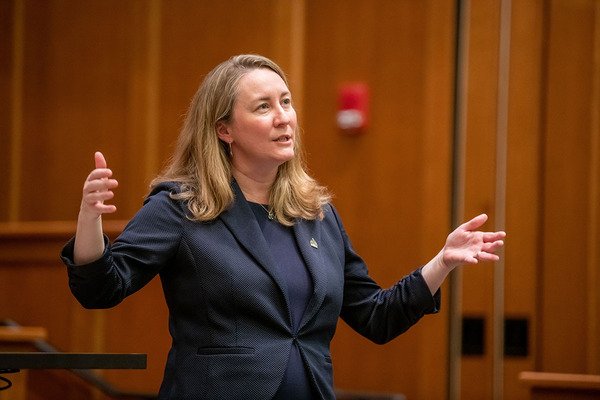In a major blow to Elon Musk and Tesla, a Delaware judge, Kathaleen McCormick ruled that the electric carmaker’s board overstepped its authority in awarding Musk a record-breaking $55.8 billion compensation package in 2018, paving the way for a potential reshaping of Musk’s future compensation and raising questions about corporate governance practices in Silicon Valley on January 30, 2024.
Flawed Approval Process
The pay package, comprises of 12 portions of stock options tied to ambitious performance goals, approved by Tesla’s board in 2018.
Under the terms, Musk could have earned the full $55.8 billion if he achieved all the targeted milestones, including significantly increasing Tesla’s market capitalization and financial performance. Chancellor Kathaleen St. Jude McCormick determined that the board’s approval process was “deeply flawed”.

Immediate Criticism and Lawsuit
However, the deal faced immediate criticism from shareholder groups and corporate governance experts. Concerns were raised about the package’s excessive size, the lack of independent board oversight, and potential conflicts of interest. A lawsuit filed in 2018 by shareholder Richard Tornetta alleged that the board breached its duties by approving a package dictated by Musk himself and failing to protect the interests of minority shareholders.
Delaware Judge McCormick’s Verdict
After a five-day trial in November 2022, featuring extensive witness testimony and a mountain of evidence, Judge McCormick sided with the accuser. In her 201-page opinion, she criticized the board’s negotiation process, highlighting the close personal and professional relationships between Musk and key members of the compensation committee. She also found that the board failed to adequately consider alternative compensation structures and did not provide shareholders with all the necessary information before voting on the proposal. “The Board breached its duties by failing to exercise due care and oversight in approving the compensation plan.” said, McCormick.

(Photo by Barbara Johnston/University of Notre Dame)
Uncertain Future and Financial Implications
The ramifications of the ruling are significant for both Musk and Tesla. The future of Musk’s compensation remains uncertain, and he is likely to face pressure from investors and the board to agree to a new, more conventional pay package. For Tesla, the decision could have financial implications, as the company may need to recalculate its compensation expense and potentially face shareholder lawsuits related to the invalidated package.
Shadow Over Corporate Governance
Furthermore, the ruling casts a shadow over corporate governance practices in the tech industry, where CEOs like Musk often wield significant power and influence. The case raises questions about how boards can effectively balance the interests of CEOs and shareholders, particularly in companies with strong founder cultures.
Appeals and the way ahead
The Delaware court’s ruling on Elon Musk’s $55.8 billion compensation package has sent shockwaves through the corporate world, marking a significant moment in corporate governance.
This case underscores the importance of transparency, accountability, and fair practices in board decision-making processes. It raises questions about balancing the interests of CEOs and shareholders, especially in companies with strong founder cultures.
The ruling could have significant financial implications for Tesla, potentially leading to a recalculation of its compensation expense and shareholder lawsuits related to the invalidated package. Despite the likelihood of an appeal from Musk and Tesla, the message is clear.
This saga will undoubtedly serve as a case study in corporate governance for years to come, highlighting the need for checks and balances in executive compensation. It serves as a reminder that even the most influential figures must adhere to principles of good governance. The ruling could potentially influence future compensation packages, setting an example for other companies.
It also emphasizes the role of shareholders in corporate decision-making, reinforcing their rights and interests. The outcome of this case could shape the future of corporate governance, particularly in tech companies where CEOs often wield significant power. The verdict sends a strong message to the corporate world about the importance of responsible and ethical decision-making.
Read about Indian Navy’s Victory at saving 36 Crew members.












Comments 2